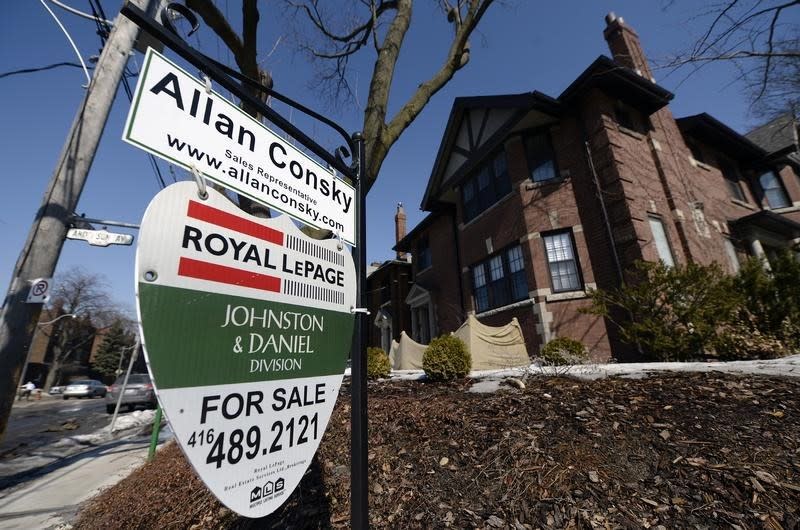Ontario's high prices drag down housing affordability in Canada: RBC

Home ownership is becoming less affordable on average across Canada thanks to price increases in Ontario, especially Toronto, and more jaw-dropping values in Vancouver, a new report from RBC Economics shows.
However, economists at Canada’s largest bank say the recent drop in interest rates – and potential for more cuts to come – could soften the blow for homeowners trying to make ends meets, at least in the near term.
In its latest Housing Trends and Affordability Report, RBCsays owing home at current market value in Canada became slightly lessaffordable between October and December, for the second straight quarter.
Overall, the report show affordabilitytrends have been relatively flat over the past five years, with exceptions in Canada’smost expensive markets, namely Vancouver and Toronto.
While Vancouver is still the least affordable market in Canada, RBC says Canada’s largest city pulled down national affordability rates in the fourth quarter.
"We are watching Toronto pretty closely as it’s a market that time and time again shows deteriorating affordability - indicating that owning a home in the area, especially a single detached, is a stretch for many local homebuyers," says RBC chief economist Craig Wright.
The report also shows housing resale activity experienced the steepest monthly decline in nearly 5 years at the end of 2014, after a surprisingly strong spring. The number of homes sold across Canada fell 5.6 per cent between November and December last year, and dropped 3.1 per cent in January.
The collapse in oil prices is being blamed for the sales decline, particularly in oil-dependent economies cities such as Edmonton and Calgary.
Calgary has become a buyers’ market, Wright says, “following a prolonged period of nearly three years when sellers had the upper hand.”
RBC senior economist Robert Hogue says interest rates would be a key factor to determine housing affordability for the next few quarters.
The Bank of Canada surprised markets in January with its cut to the overnight lending rate, which led mortgage lenders to drop their rates for both fixed and variable terms. Economists say the Bank of Canada could cut rates again tomorrow, during its next scheduled rate announcement, or wait until later this year.
However, his economics team expects rates to start rising again in 2016.
“Any rise in interest rates would threaten to erode affordability conditions and weigh on homebuyer demand in Canada,” he says.
Hogue noted housing affordability varies considerably across Canada. While Vancouver and Toronto are getting expensive, he says markets in places such as Montreal and Ottawa have been more stable.
“The housing market in Canada has been two-tiered, if not multi-tiered,” he says.
Hogue expects the market composition to change as low oil prices continue to impact values in cities such as Calgary and Edmonton, while the resulting lower dollar helps to boost the economies in manufacturing cities in Central Canada.
RBC measures housing affordability based on the amount of pre-tax household income needed to service the costs of owning a home.
In the fourth quarter, national affordability measures inched up 0.1 per cent to 42.7 per cent for bungalows and 0.2 per cent to 48.1 per cent for two-storey homes, the report shows. The measure for condos across Canada was unchanged at 27.4 per cent.
Here’s a look at housing affordability measures for the detached bungalow in Canada’s largest cities in the fourth quarter:
Vancouver 82.4 (down 1.2 per cent from the third quarter);
Toronto 56.8 (up 0.8 per cent)
Montreal 37.3 (unchanged)
Ottawa 36.0 (up 0.2 per cent)
Calgary 33.7 (down 0.6 per cent)
Edmonton 33.5 (up 0.1 per cent)

 Yahoo Finance
Yahoo Finance 